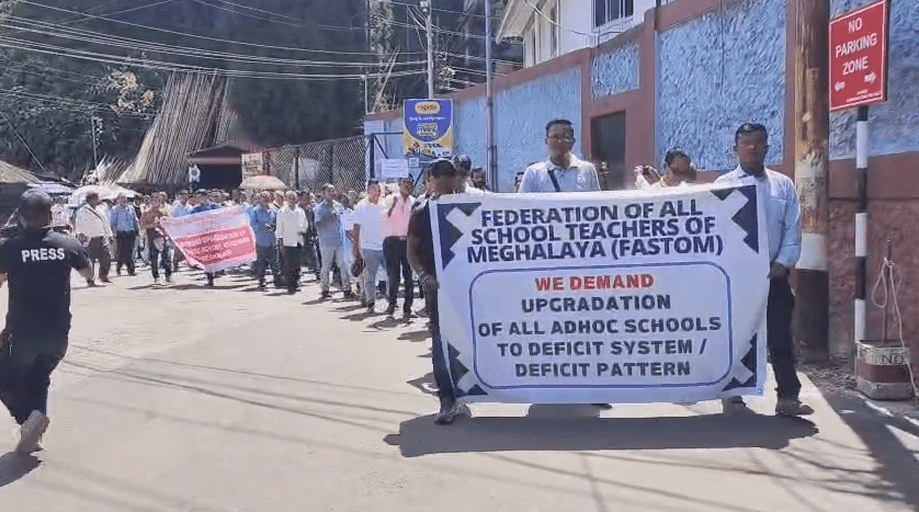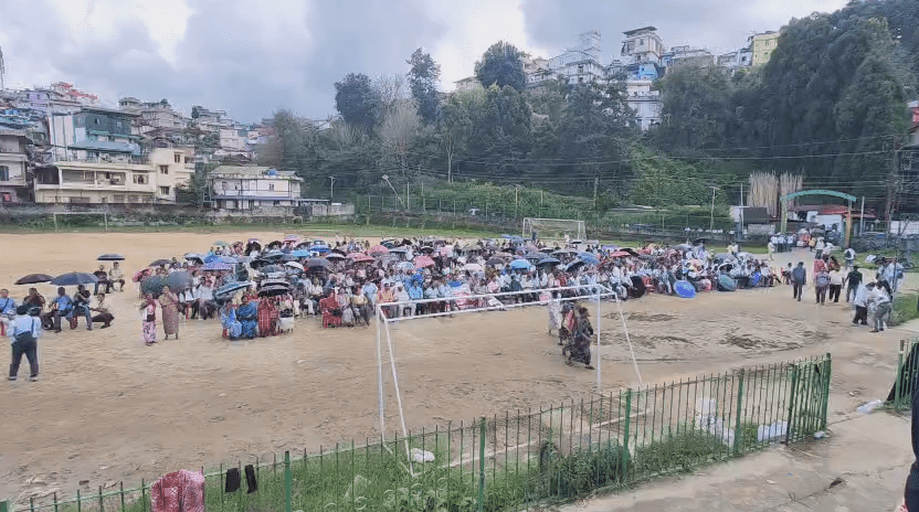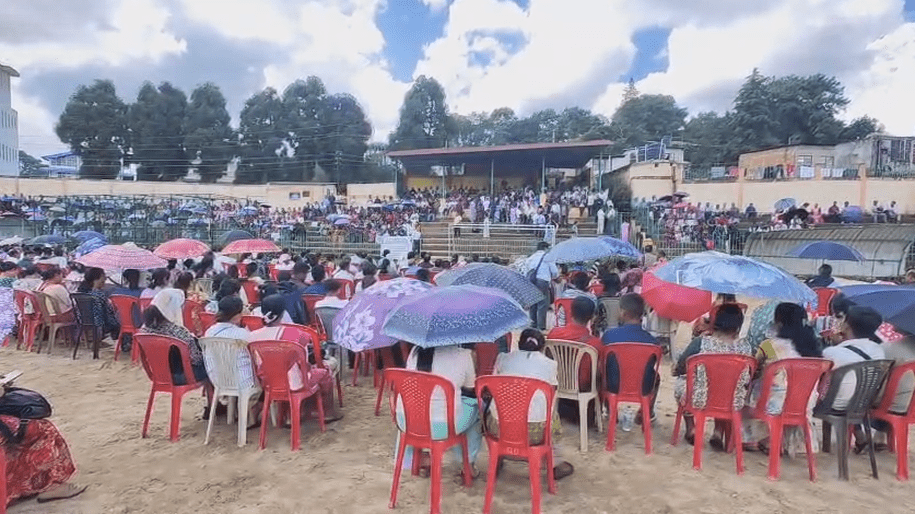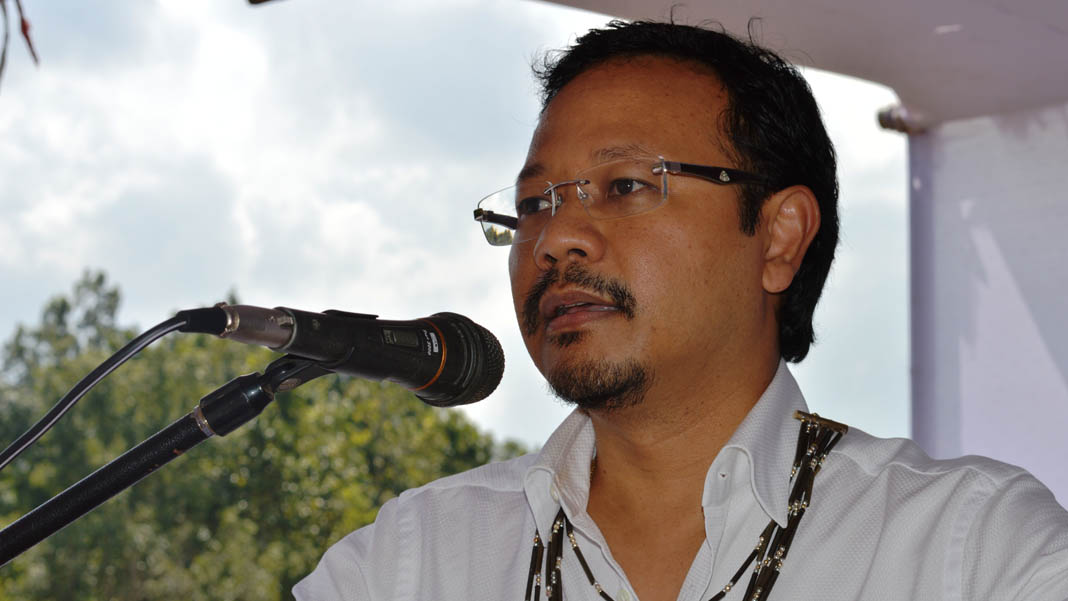Bring ad hoc teachers under deficit system, ensure better pay & benefits: FASTOM
Shillong, Sep 22: Ad hoc school teachers of the state on Monday staged a protest march and launched an indefinite sit-in demonstration, demanding upgradation of ad hoc schools and teachers to deficit system.
The ad hoc teachers under the banner of Federation of All School Teachers of Meghalaya (FASTOM) have been demanding better pay and benefits.

The demands include upgradation to deficit system, 5% annual increment, and extension of retirement age from 60 to 65 years.
The current salary of ad hoc teachers range from Rs 18,000 for lower primary, 22,000 upper primary, 29,000 secondary, Rs 31,000 science teachers, Rs 33,000 higher secondary teachers.
Teachers are forced to take to the streets due to state government’s failure to address their legitimate demands for the past many years, FASTOM Vice-President S Jungai told reporters.
“We are demanding that ad hoc schools and teachers be upgraded to the deficit system, which would enhance their pay scale and benefits. Therefore, we are urging the government to come up with a policy to do away with the ad hoc system, ensuring that their salary is enhanced as was done for other teachers,” he stated.
He also pointed out that ad hoc teachers have the same qualifications as other teachers but are paid significantly less, with a huge disparity in the pay scale.
The government has cited financial constraints as a reason for delaying the implementation of FASTOM’s demands, he said.
However, the teachers argue that their contribution to the education sector warrants better compensation.
Jungai also expressed disappointment that the state education commission has allegedly failed to make any recommendations on enhancing the salary of ad hoc school teachers.

According to him, the teachers are seeking dignity and respect for their profession, pointing out that an ad hoc teacher who has been serving for 30 years is drawing the same salary as a freshly recruited teacher.
He announced that the teachers will continue their peaceful agitation until their demands are addressed.
“If the government can address their issues within a day or two, it is well and good, but if not, they will take other courses of action (to further intensify our agitation),” Jungai said.




